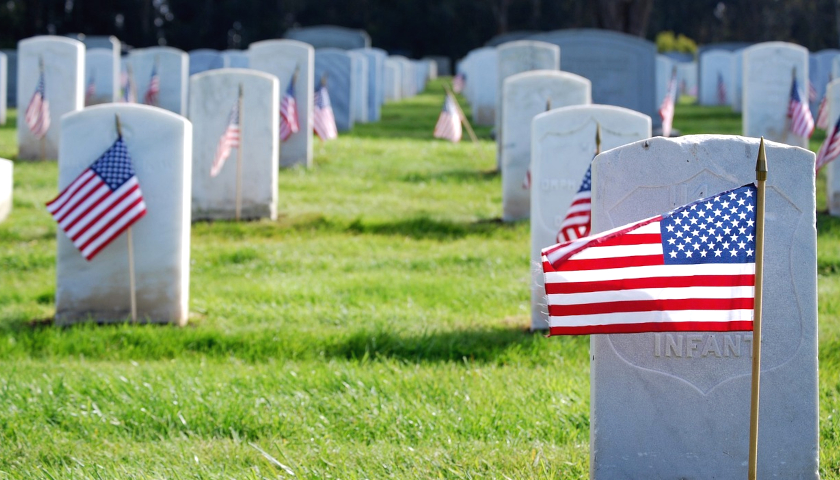by Morgan Sweeney
The first meeting of the task force Preserving Virginia Military Survivors and Dependents Education Program was held Monday, with many of its members and those in attendance raising their voices or holding back tears as they spoke.
“I thought VMSDEP was a formal thank you to the families of veterans, the Gold Star families,” said one attendee, the wife of a retired marine. “I am so sorry that we cost you too much,” she said, choking back tears.
The General Assembly passed a budget on May 13 containing changes – effective just two days later – narrowing eligibility due to ballooning program costs. For those not formally committed to a program at a public Virginia college or university by May 15, the program became limited to undergraduate education. It also required that participants live in Virginia, meet certain academic benchmarks and apply for other state or federal aid before applying for VMSDEP.
Qualifying applicants can pursue a degree with tuition and mandatory fees covered, and some qualify for a once-per-semester stipend to help cover other school-related expenses like books or room and board.
The changes unleashed so much backlash from veterans and military families that Gov. Glenn Youngkin issued an executive directive to assemble a task force to study the program changes and sustainability, and he also called on Assembly leaders to convene a special session to repeal the changes.
Monday’s meeting, which included a lengthy public comment period, revealed anger at Virginia universities, the State Council of Higher Education for Virginia and the legislators who passed the budget; feelings of betrayal toward a state that boasts in its care for its military population; frustration at a lack of clarity about the changes themselves; and some hope that the special session will “right this wrong.”
Multiple people, including task force members, questioned the data that has circulated about program growth, for which the universities mostly foot the bill.
“Why are we continuing to accept numbers at face value?” asked Kayla Owen, founder of Friends of VMSDEP and a task force member. “The universities continue to get slapped on the wrist over misappropriation of funds, yet they keep running back to the bank of the General Assembly crying poor.”
In the 2018-19 school year, according to numbers cited by the governor in Executive Directive 7, 1,385 students were enrolled in VMSDEP across all public colleges and universities in Virginia. By the 2022-23 school year, that number had grown to 6,107 students – a 341 percent increase. Program costs grew even more in that time – by 444 percent – from $11.9 million to $64.8 million.
All of this, due to changes that made more people eligible for the program and efforts to increase program enrollment.
“It is both an honor and an agony to serve on the Preserving VMSDEP task force before you today,” said Kristen Fenty, another representative from Friends of VMSDEP and a Gold Star spouse. Fenty shared how her daughter plans to attend medical school, and they were relying on VMSDEP to help relieve some of the undergrad costs.
“The experience has made us lose faith in our representative government and done harm to our community,” Fenty said.
Others expressed resentment over the swift changes and confusion over how they were worded.
“My daughter graduates from high school tomorrow, and she still does not know if she is grandfathered for VMSDEP benefits,” said one attendee, explaining that some of the terms included in the eligibility changes are unclear.
“What is the definition of formally committed? Who knows? We don’t know,” he continued. He said the Council had indicated that enrollment in VMSDEP by May 15 might also be a requirement, though applications for fall semester benefits aren’t available until July 1.
Another attendee agreed, saying that even if the changes couldn’t be repealed, the state owes military families a set of unambiguous program guidelines and standards. Her husband suffers from multiple injuries due to service, and she had been planning to pursue a graduate degree in physical therapy to help provide for their family.
“If it can’t happen, we demand that a clearly worded document leave nothing up to interpretation, allowing families to know exactly what the benefit is and how we will be able to calculate it going forward,” she told the task force.
“The only fix is for the special session to rescind all of these atrocious, arbitrary VMSDEP changes,” said an attendee. “This task force cannot fix this problem in time.”
“If Virginia doesn’t do right by this bill, other states will follow,” another attendee warned.
The meeting concluded with Secretary Craig Crenshaw’s statement that the General Assembly will hold a special session on June 28 to revisit the changes.
– – –
Morgan Sweeney is a staff writer covering Virginia and Maryland for The Center Square. Morgan was an active member of the journalism program as an undergraduate at Hillsdale College and previously freelanced for The Center Square.
Photo “Veteran Cemetery” by jkmoller11.









